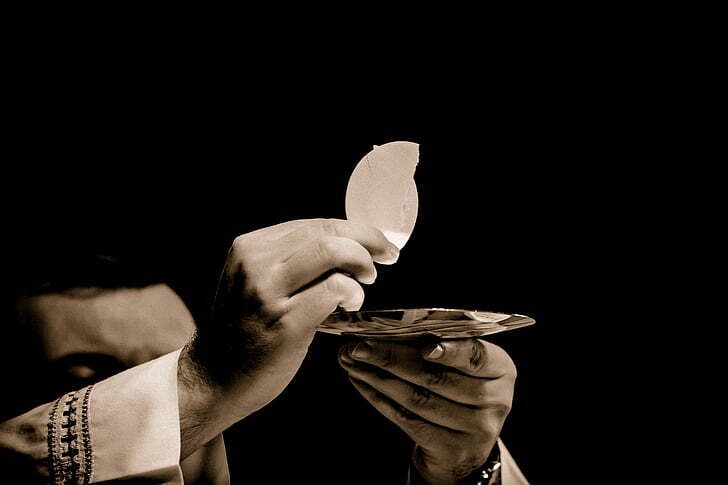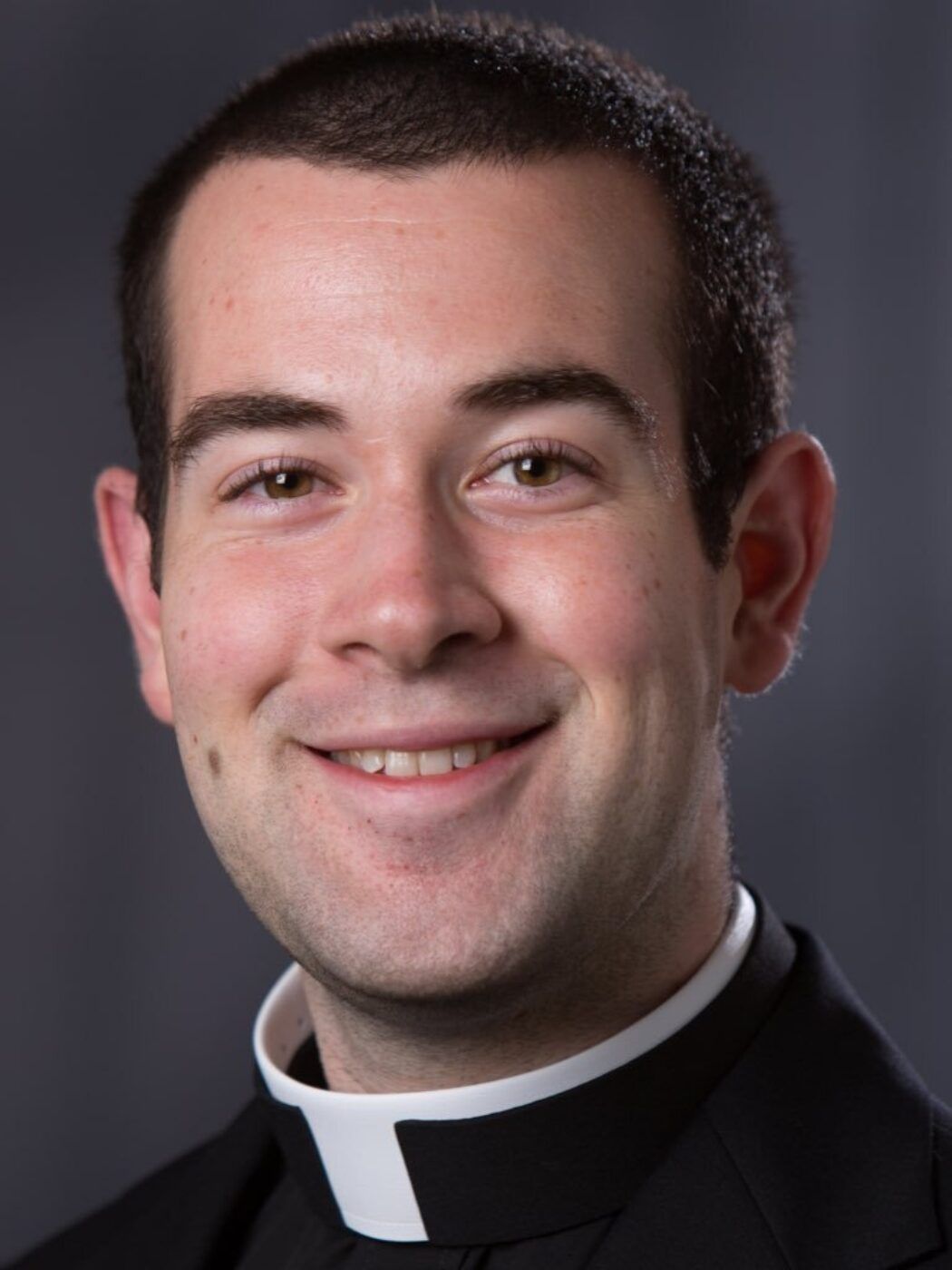This weekend’s Gospel picks up right where we left off last Sunday, in the sixth chapter of John, in the midst of Jesus’ Bread of Life Discourse. Last weekend, our Savior introduced the mystery of the Eucharist - as He says, the Bread of Life which He gives is His own flesh, for the life of the world. In these days, the Church throughout the world has the opportunity to reflect on how to receive Holy Communion well: by preparing ahead of time in prayer and recollection, by receiving the sacrament with great reverence and speaking to Christ from the heart, and prolonging our awareness of Communion by reflecting in gratitude upon Who it is that has come into our soul: Jesus Christ, risen from the dead, living, and able to impart life to us.
So, assuming that we consistently approach the Eucharist in this way, what can we expect will happen? As long as we’re not putting up obstacles, Jesus is going to change us. It probably won’t be a huge, sudden change (though that does happen sometimes!), but over time - months and years - we should really be able to look back and observe - “Wow…God has changed my life for the better.” If we really can’t see any concrete effects in our life, then we know that there’s a problem.
Healthy things are meant to grow and flourish. We know this even in something as simple as a small backyard garden. If you planted seeds in the spring and you don’t have zucchini or tomatoes at this point, something went wrong. The intended outcome - vegetables - was blocked by an obstacle - you didn’t water the plants properly, or you let weeds spring up and choke the plant while you were away at the Cape, or you didn’t fertilize, or little beetles came and bit holes in everything, or squirrels stole it all away. What about the garden of your immortal soul? Is it flourishing? Is it healthy?

There are four main fruits of receiving Holy Communion, concrete effects that take place, areas in our life where we can observe that gradual change for the better over time. The Catechism of the Catholic Church speaks of the following sacramental graces available to us -
1. Our personal friendship with Jesus grows deeper and stronger. “The principal fruit of receiving the Eucharist is an intimate union with Christ Jesus. Indeed, the Lord said: ‘He who eats my flesh and drinks my blood abides in me, and I in him.’ Life in Christ has its foundation in the Eucharistic banquet: ‘As the living Father sent me, and I live because of the Father, so he who eats me will live because of me.’…”
“What material food produces in our bodily life, Holy Communion wonderfully achieves in our spiritual life. Communion with the flesh of the risen Christ…preserves, increases, and renews the life of grace received at Baptism. This growth in the Christian life needs the nourishment of Eucharistic Communion, the bread for our pilgrimage.” In the Eucharist, we go from knowing information about Jesus to knowing Jesus as a friend, and our bond with Him overcomes anything the world can throw at us.
2. Holy Communion separates us from sin and enables us to live in increasing freedom. “The body of Christ we receive in Holy Communion is ‘given up for us,’ and the blood we drink was ‘shed for many for the forgiveness of sins.’ For this reason the Eucharist cannot unite us to Christ without at the same time cleansing us from past sins and preserving us from future sins…As bodily nourishment restores lost strength, so the Eucharist strengthens our charity, which tends to be weakened in daily life; and this living charity wipes away venial sins. By giving himself to us, Christ revives our love and enables us to break any disordered attachments to things of this world and root ourselves more fully in Him…the more we share the life of Christ and progress in his friendship, the more difficult it is to break away from him by mortal sin.” The false promise of satisfaction which sin offers but never fulfills loses its allure when we are allowing Christ to meet our authentic needs.
3. The Eucharist unites us to each other as members of one spiritual family. “Through receiving the one Sacrament, Christ unites all the faithful in one body - the Church. Communion renews, strengthens, and deepens this incorporation into the Church, already achieved in Baptism. In Baptism, we have been called to form but one body. The Eucharist fulfills this call: ‘The cup of blessing which we bless, is it not a participation in the blood of Christ? The bread we break, is it not a participation in the body of Christ? Because there is one bread, we who are many are one body, for we all partake of the one bread.’” This is one of the reasons why the Sign of Peace is placed so close to our reception of Communion. Before saying “Amen” to the God we cannot see, we first reaffirm our love for the brother or sister who we can see, shoulder to shoulder with us, all of us created in the image and likeness of God, sons and daughters of the Father.
4. The Eucharist commits us to the poor. Jesus tells us that what we do or fail to do for the least of our brothers and sisters, He takes personally. Holy Communion trains us to perceive spiritual realities and to reset our priorities according to the heart of God. Mother Teresa famously remarked that she would not have been able to recognize Jesus hidden in what she called “the distressing disguise” of the poor if she had not been in the practice of finding Him hidden under the appearance of bread and wine in the Eucharist, which she received early each morning. And so, the Eucharist that we receive on Sunday is meant to pervade our entire week. Finding Jesus here leads us to also discover Him in other places, and in other people, especially those who are in need.
And so, as we offer the holy sacrifice of the Eucharist today, we ask that it may always bear its intended fruit in our lives: (1) strengthening our union with Jesus, (2) separating us from sin, (3) uniting us to one another in the family of the Church, and (4) giving us a heart that reaches out to the poor.


